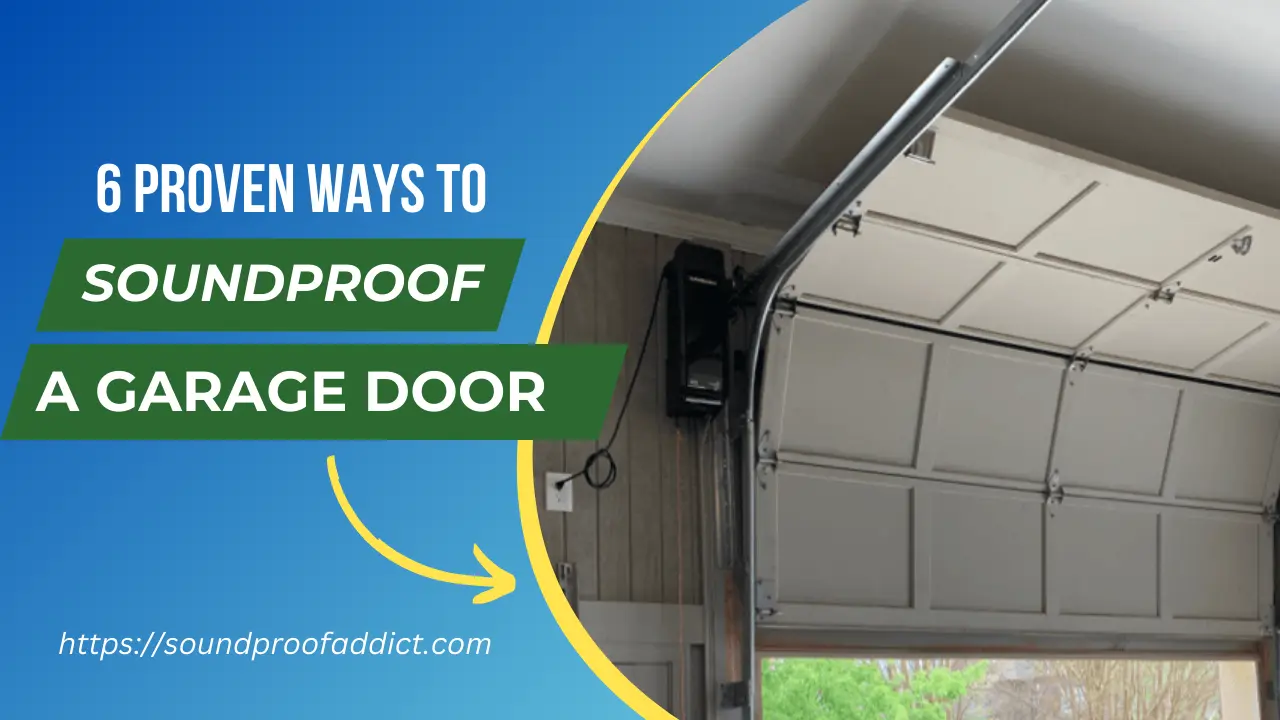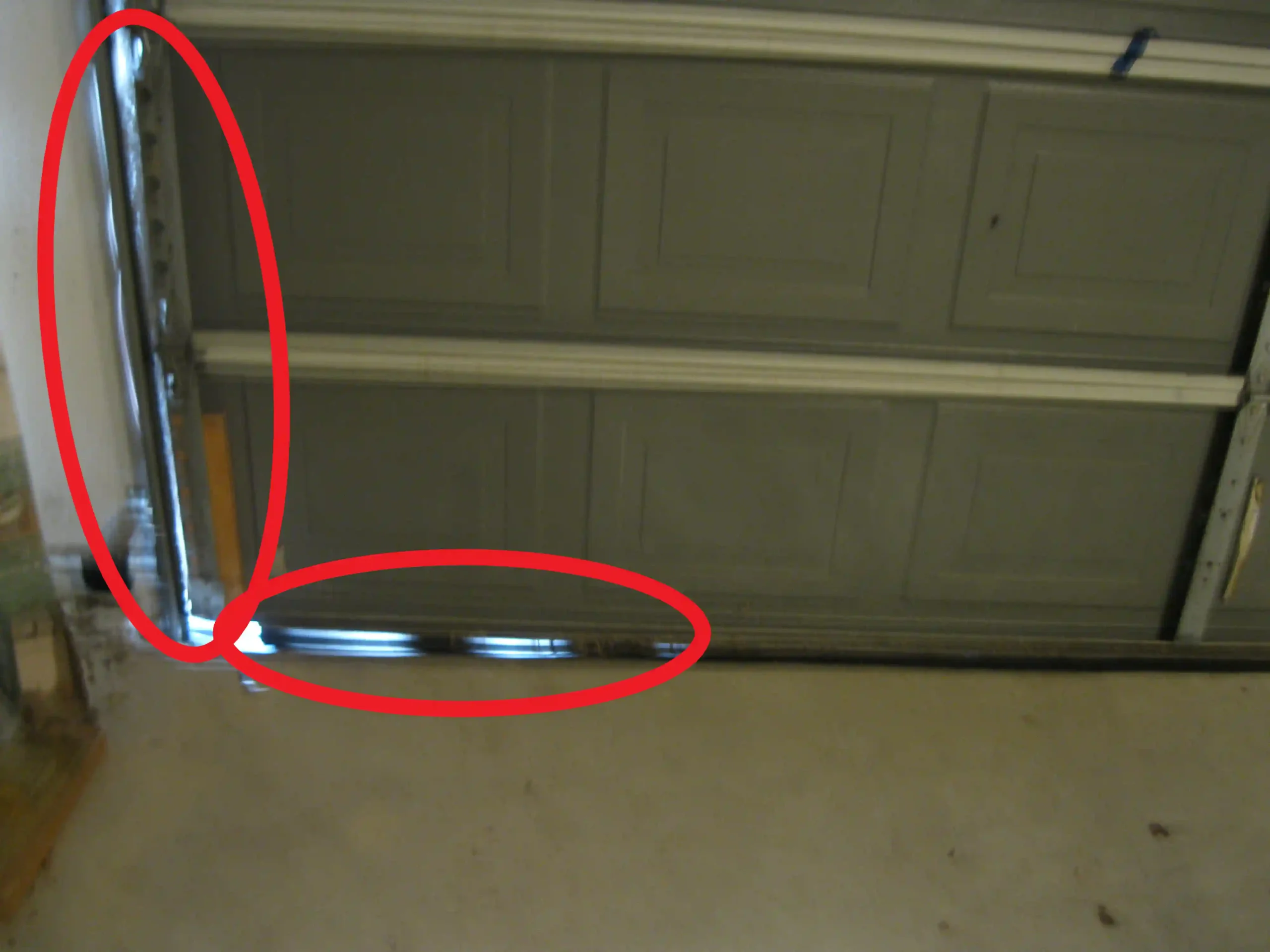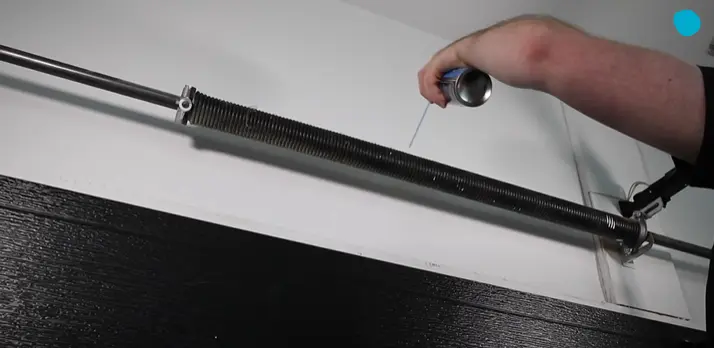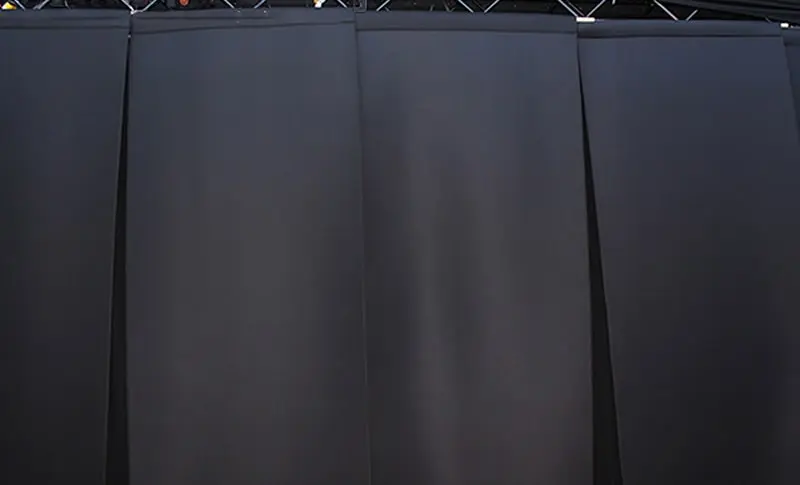How To Soundproof a Garage Door? {6 Proven Ways}

Soundproofing a garage door can be super tricky, it might feel like trying to solve a tricky puzzle, where the answer seems just out of reach.
But don’t throw in the towel just yet – tackling that noise issue is absolutely doable!
And after soundproofing dozens of garage door, I’ve put together a list of 6 proven ways to soundproof a garage door, so you can enjoy the tranquility and focus on the task at hand.
Whether you’re looking for a quick fix or a more permanent solution, we have a range of approaches that are sure to make a difference (quiet, of course).
So, keep reading to learn: How to soundproof a garage door?
6 Best Ways to soundproof a garage door
1: Seal all the gaps around the door

When soundproofing a door, minimizing gaps is super important. As you probably already know, a garage door may have tons of gaps, especially if it is a sectional garage door.
To put that into perspective, gaps are the biggest culprits that let the sound enter and escape from your garage. So, it is really important to seal them and minimize the gaps as much as possible.
To seal the gaps, I would recommend using high-density adhesive foam tape. It is an excellent choice for sealing gaps around your garage door for soundproofing due to its excellent sound absorption properties.
- Just make sure the area around your door is free from dust and debris.
- Also, if you have any existing weather-stripping installed, don’t forget to remove it.
- Once this is done, measure the gaps around your garage door where you want to apply the foam tape.
- Then, cut the tape to the size and peel off the backing from the foam.
- Apply it and press it to make it adhere properly.
2: Use acoustic foam panels
If you are a garage owner with sectional garage doors or swing-out garage doors, using acoustic foam panels is one of my primary recommendations for you to soundproof your garage door.
We are all familiar with acoustic foam panels and their ability to absorb and dampen sound. The unique composition of acoustic foam panels makes them perfect for absorbing and diffusing sound waves.
Now, let’s see how you can use acoustic foam panels to soundproof your door. You have two options for using them on your garage door.
- First, you can directly stick them on each section of your sectional garage door or swing-out garage door.
- Or, you can use adhesive spray to stick the foam panels onto something called “insulation wrap” and then attach this special foam-and-wrap combo to your door using double-sided tape.
If you find this confusing, watch this video from the time stamp 03:09 to 04:58 for a visual demonstration: https://www.youtube.com/watch?v=Vc5BtZopW-A
Now, which option are you going to choose?
In my opinion, the second option is the BEST for two reasons.
- First, it adds to the soundproofing of your garage door since insulation wrap is really effective at it.
- Second, something you might not have considered is that using adhesive spray directly on your door may damage it. If you later decide to remove the panels, you could encounter difficulties.
That is why I recommend the second option. I mean, first attach the acoustic foam to a insulation wrap using a strong adhesive spray and this combo to your garage door using a strong double-sided tape.
Well, this option can be applied to other types of garage doors as well, but it is not suitable for soundproofing a roll-up garage door.
3: Apply lubrication to the garage door mechanisms

Lubricating the hinge mechanisms of your garage door is a super simple way to make your garage door much quieter. It is easy to do, but still, many garage owners overlook it.
Applying lubrication to the garage door mechanisms is really important as it can help reduce friction and minimize the noise caused when you open and close your door. (learn: make a sliding door quiet)
To apply lubrication, choose a good-quality garage door lubricant; it would be even better if the lubricant is specifically designed for garage doors.
Then, just coat the moving parts with it, such as the rollers, hinges, and tracks. If you operate your door with a motor, lubricate it too to ensure smooth operation.
4: Use heavy-duty soundproof curtains
Using heavy-duty soundproof curtains is a practical solution for soundproofing a garage door.
These curtains are quite effective at absorbing and blocking out noise, and they create a barrier that helps reduce noise transmission between the inside and outside of your garage.
Soundproof curtains can be used to soundproof all types of garage doors, but in my perspective, they are especially suitable for soundproofing roll-up garage doors and sliding doors.
You can install these curtains just as you would install them on your regular doors, which basically involves installing the curtain rod and hanging them on that rod.
However, garage doors are larger in size than normal doors and require larger and heavier curtains, so make sure to choose a curtain rod that is sturdy and capable of supporting the curtains’ weight.
By the way, if you can’t find a curtain the size of your garage door, you can either customize one, or you can use multiple curtains to get the job done.
Related: How to do acoustic-improvement of a barn door?
5: Use mass-loaded vinyl

Mass loaded vinyl (MLV) is one of the top-notch materials out there for garage doors soundproofing. It is a dense, flexible sheet that can be applied to the inside of your door to absorb and dampen sound.
Using MLV for your garage door is simple. You don’t have to do anything fancy when using them on your garage door; just use it as you would for soundproofing other types of doors.
- That being said, start by measuring the dimensions of your garage door and cutting the vinyl sheet to fit.
- If you have a sectional garage door, then cut it according to the size of each section of your door.
- Make sure to leave a slight overlap around the edges to get a bit more soundproofing benefits.
- Next, clean the surface of your garage door to ensure proper adhesion. This is super important, especially if you’re applying adhesive to the back of the MLV sheet.
- Once you’ve cleaned and applied the adhesive, stick the MLV sheet that you prepared earlier and press it firmly onto the door.
- Lastly, don’t forget to smooth out any wrinkles or air bubbles. It will improve the effectiveness of MLV.
Now, let me tell you that MLV can be costly, and since garage doors are quite large, it will be even more expensive to install mass-loaded vinyl onto a garage door. It may cost you up to $300.
Related post: How to make a pocket door quieter?
6: Replace your existing garage door with a insulated garage door
If you’re really serious about cutting down the noise from your garage door and want to turn your garage into a recording studio then swap out your current garage door for one that’s insulated and more soundproof.
Insulated garage doors are pretty good at lowering the amount of noise that comes through. These doors have a layer of insulation sandwiched between two layers of metal or wood.
This creates a strong barrier that helps stop outside noise from getting in. Plus, it also helps keep the temperature in check, making your garage more comfortable throughout the entire year.
When you’re thinking about an insulated garage door, keep an eye out for one with a high R-value. This R-value measures how effective the insulation is, with bigger numbers meaning better insulation. For the best results in soundproofing, try to find doors with R-values of 13 or more.
Now, if you’re replacing your current garage door for an insulated one, it might need a professional to handle the installation.
It depends on how good you are at DIY and how complex the task is. But, I would always recommend getting a pro for the installation for a safer and proper installation.
Related: 9 Proven ways for noisy hollow doors
How to soundproof a roll-up garage door?
To soundproof a roll-up garage door, use mass loaded vinyl (MLV) as a curtain. This approach involves hanging MLV curtains just like regular curtains, which helps to reduce the transmission of sound through the door.
So to use MLV as a curtain, simply hang them on the inside of your garage door using a sturdy curtain rod, just like you hang regular curtains. Make sure to cover as much surface area as possible to maximize the soundproofing effect.
How to soundproof a garage door opener?
To soundproof a garage door opener, regularly lubricate the moving parts of the garage door opener, such as chains, belts, and rollers. Proper lubrication can reduce friction and associated noise.
Another effective way to make a garage door opener quieter is to ensure that all components of the garage door opener, including brackets, screws, and fasteners, are tightened properly. Loose parts can vibrate and create additional noise.
However, if you’re installing a new garage door opener, consider choosing a model designed for quiet operation. Belt-driven openers tend to be quieter compared to chain-driven models due to reduced vibration and noise from the moving components.
Related: Soundproof French doors exterior
Frequently Asked Questions
Q1. Does garage door insulation help with noise?
Yes, garage door insulation can help reduce noise by adding a barrier that absorbs sound and prevents it from easily passing through the door.
Q2. Can you spray foam a metal garage door?
Yes, you can spray foam insulation on a metal garage door to improve insulation and noise reduction.
Q3. How can I make my aluminum garage door quieter?
To make an aluminum garage door quieter, consider adding insulation to dampen sound, applying rubber weatherstripping to seal gaps, and ensuring that all moving parts are properly lubricated.
Q4. Should you lubricate garage door springs?
Yes, you should lubricate garage door springs once or twice a year to maintain their proper functioning and reduce friction, contributing to smoother and quieter door operation.
More related posts from us:
- 7 effective ways to a noise cancelling bifold door
- Can I soundproof a condo door?
- Louvered door soundproofing techniques
- How to noise-proof a bathroom door?
- How to make an interior door more soundproof?
- What is the cost of a soundproof door?
